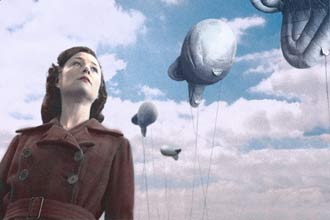 Each year the (UK) National Film & Television School asks their Year One Group (Documentary Direction; Cinematography; Location Sound; and Editing) to combine strands, and produce a short film based on a line of poetry.
Each year the (UK) National Film & Television School asks their Year One Group (Documentary Direction; Cinematography; Location Sound; and Editing) to combine strands, and produce a short film based on a line of poetry.The tutors for the course are directors Asher Tlalim and Dick Fontaine. Fontaine has directed documentaries with, and about, The Beatles, Norman Mailer, and many of the great American Jazz legends. The visiting Tutors are writer Jane Corbett and cinematographer Sean Bobbit.
They also invite two guest poets each year to kick-start the intensive 5-week project as part of a workshop panel, to read their poems, and discuss the creative conflict between image and word. This year, I was invited to join English poet Julia Casterton.
We read some of our poetry, and had an intense, free-wheeling debate on violence and experience, where to place the camera when filming in a war zone, cinema of the Holocaust, the relative merits of Tarantino, and the dialectical nature of documentaries, which Julia suggested might be one part tragedy, one part accident. We all agreed the unearned sensational image was worst, and the best was the one which seemed indirect, felicitious.
My poem on Charlotte Rampling, from Rue du Regard (DC Books, 2004) went over well.
http://www.nftsfilm-tv.ac.uk/
Comments